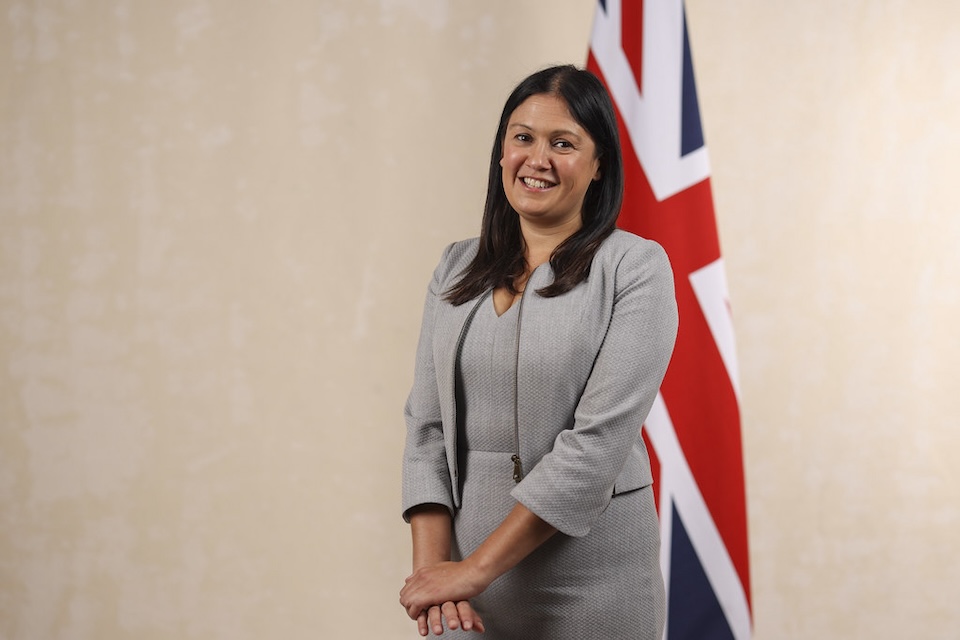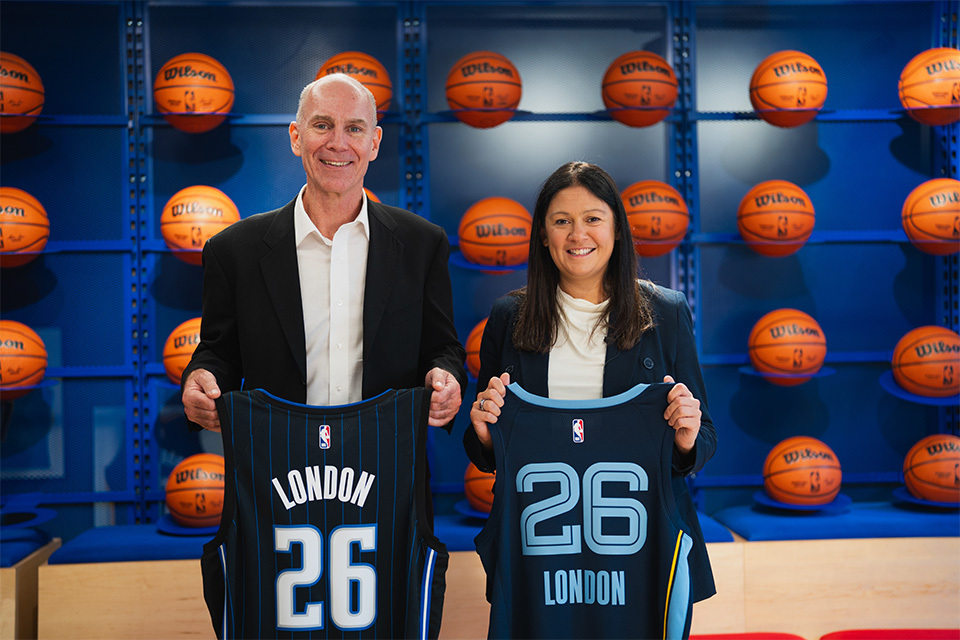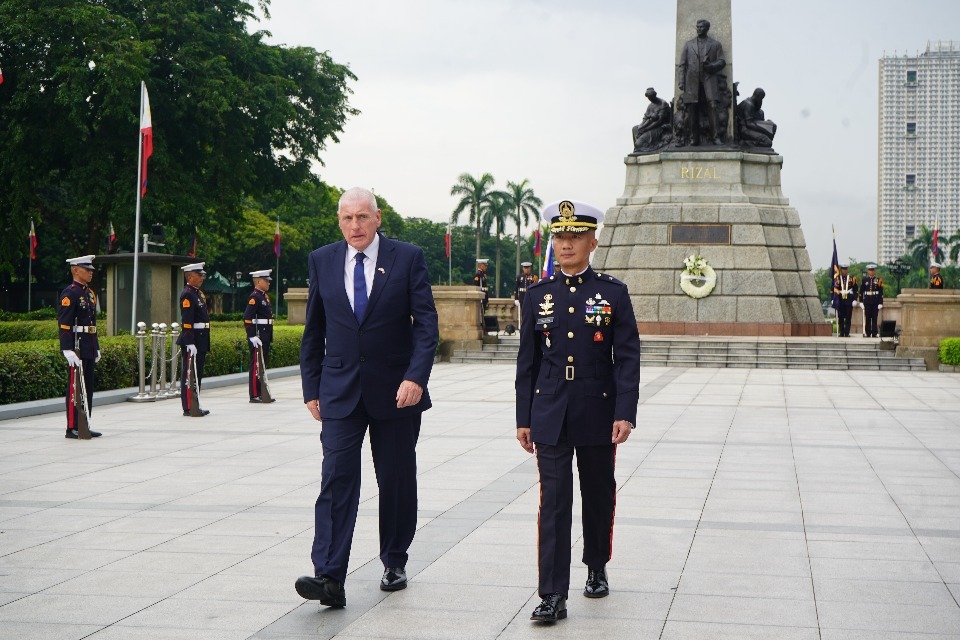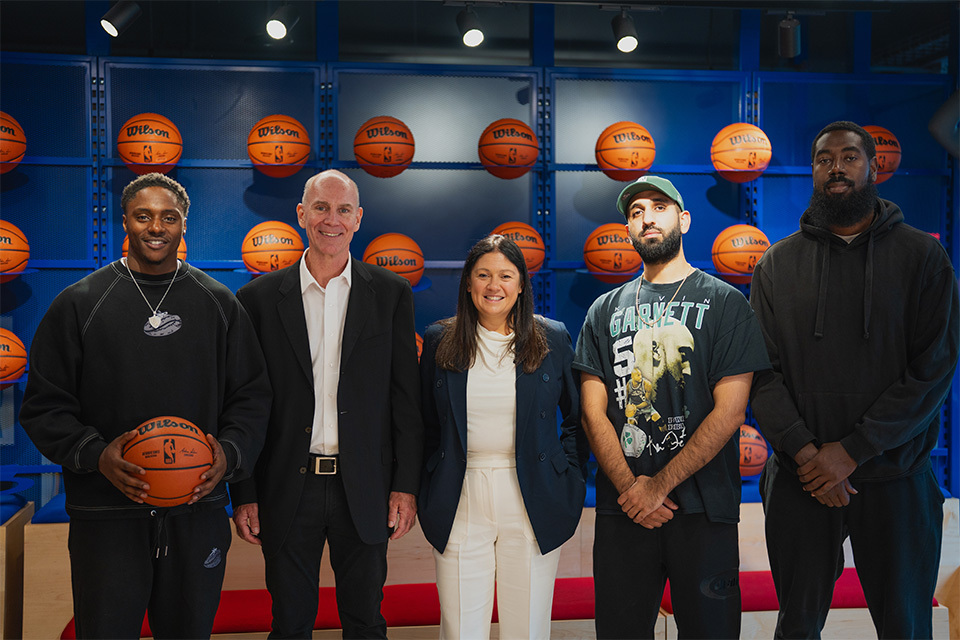Last week an activist in the US was shot dead while closer to home an MPs office was set ablaze.
Over 100,000 people marched across the capital in a country under the banner “unite the kingdom”.
Many of you in this room reported on the shocking attacks on police and racist conspiracy theories that were on open display.
But many of you also showed the ordinary people, who reject violence and racism, who are increasingly drawn to these movements and these moments.
We should not be surprised. For too long, too many people have not been seen, their contribution not valued.
The systems that are meant to pull in behind them too often work against them when they try to make change.
That invisible chain that George Orwell described, that binds our nation together, needs to be nurtured. Because anger is only one part of this story.
We all want to feel proud – proud of and part of our country and the places we live, that we love, where we bring up our kids and where we choose to grow old.
That is the hope. That in the end, our best hope remains each other.
Our Government has made it our priority to build an economy that works for people across the whole of the UK and to tilt power back to those with skin in the game, so that together, we can build a country that works for us all.
When people tell us that thriving high streets and opportunities for their children – sports clubs, art, music, youth services – matter, our message is that you will no longer face violent indifference to those things. If it matters to you then it matters to us too.
But while it is right to respond to the fact that too many people have been written off, we must also respond to the fact that too many of us have been written out – out of our own national story.
And that is why I am talking to you about this here at RTS today.
Because it is my belief that this country is staring down two alternative paths. We can fall apart or we can rise together.
It has been so long coming, but nobody surely now believes, that in this stormy present, that we can continue to cling to the dogmas of a quiet past.
Every single one of us in this room – whose role is so critical to the future of our country – faces a choice.
We can drift into a future that we have glimpsed several times in recent years where only some of us can be seen and heard and where most of us must lose in order that some of us can win.
Or we can choose to build a country that is wide and inclusive enough to respect and recognise all of us, civilised enough to embrace difference, debate and dissent without being destroyed by it.
And in this room – we can choose.
We can choose to draw from the talent across our whole country to make and commission the stories that matter to most people, rooted in the very different realities and experiences facing people across our country.
We can choose to enlighten and inform – arm people with the facts they need to allow for civilised debate about the future of our country, whatever choices they then make with that information.
We can choose to provide and protect high quality, impartial news as Christiane Amanpour says – that is truthful not neutral – and forges the basis of shared understanding.
And we can choose to invest in great entertainment and culture that brings us together, provides those shared national moments, provokes us and makes us think. Art still has power – as Matthew Arnold put it. Take refuge there.
We already have the foundations to build that future. In Britain we have a unique strength – a strength that is the envy of people across the world, that underpins our whole broadcasting ecosystem.
That is our public service media, which provides us with higher levels of trust, higher quality debate, greater intolerance for corruption and shared national moments – in short, one of the most valuable tools we have to empower our citizens to help us understand one another and make our own informed choices – whatever those choices may be.
And yet as OFCOM have warned this vital part of our national culture is under threat. Public Service Media is fighting to be seen and heard in an increasingly competitive market.
It fights with one arm behind its back, staring down multiple challenges – funding shortfalls, changing viewing habits and regulation that hasn’t kept pace with the media revolution of recent years.
Together we need to fix those foundations for the long term.
So firstly, we will empower audiences by ensuring that high quality content is seen. The Media Act ensures Public Service Media has prominence on smart TVs.
But we want to go further.
As video viewing moves away from broadcasters’ own services and towards third party platforms we support OFCOM’s recommendation that Public Service Media content should be prominent on major video sharing platforms and on fair commercial terms. If we need to regulate we will.
But we would prefer industry to come together to move on this and move quickly. Because as you and we all recognise, we all benefit and are all stronger for the dynamic mixed ecology of our commercial broadcasters, streamers, studios and content creators that together with our independent production sector make the UK a global TV powerhouse.
Secondly, we will act to empower audiences further, so that not only do they see high quality content, but they can distinguish between news and polemic, and misleading or false content.
The lines have blurred in recent years and it has eroded trust in our media, democracy and most dangerously, in each other.
Ofcom’s consultation on politicians presenting news closed in June, and we await their findings with interest.
But this is only one part of the problem.
It is also about ensuring that the standards we expect from our Public Service Media are reflected across the whole of broadcast media so that the highest standards are upheld, polemic is not presented as fact, and people can trust what they see.
The lines between editorially curated and user generated content, between content providers and content platforms are no longer clear. In short, what constitutes “television” is changing before our eyes.
And our Government will ensure that regulation is fit for this era.
Thirdly we will work with you all to achieve our shared goals that AI empowers and informs and does not fuel mis and disinformation. And to support the creation and dissemination of high-quality news, not undermine it.
We know news and media already excel and make up around two-thirds of AI commercial licensing agreements. This is really, really welcome, and I’ll continue to work closely with Liz Kendall to ensure we build a framework that works for our world-class creatives and publishers while supporting responsible innovation and growth in the UK’s AI sector.
But I also want to be clear that there are limits to what the Government can do to tilt the scales back in favour of Public Service Media without action from all of you.
OFCOM have called for more ambitious partnerships amongst Public Service Media providers – and with others in the sector – to support their sustainability and benefit audiences. We agree.
Last year I asked for much greater urgency to diversify the TV workforce, to move commissioning out of London and to ensure the whole nation is reflected in the story we tell ourselves about ourselves as a nation. Of course that isn’t just the job of Public Service Media, it is a challenge that belongs to us all – but can any of us in this room really say hand on heart that we have done enough?
It is not and never should be the job of the Government to determine who is heard and what is told. But I think many of us can see the problem, when what constitutes news and culture is determined and commissioned by a group of people who are drawn from just one background and one part of our country. It is a conversation that too often excludes not just some of us, but most of us.
It is no surprise then that when people feel what they see lacks relevance to their lives, they seek out other sources of news, culture and information. And when they find messaging that resonates – that tell us that others are winning at our expense, that we should be afraid, that if change is coming it will only come from ourselves – then there’s no limit to this. We hear that London is falling. That civilisation is on the brink. That chem trails are being used to control us. And we become susceptible to mis and disinformation that chimes with our experiences and the world view that is born from it.
The media isn’t responsible for this alone. We all have a responsibility to take a long hard look at ourselves and you, most of all, must continue to hold a mirror up to a political system that over the years has seen trust erode.
But when I ask for change in an industry where commissioning power is still concentrated in London, and the workforce remains overwhelmingly drawn from one background – this is why. Because you are too important to be anything other than relevant, trusted forces that are felt to belong to the whole nation.
There is no shortage of incredible examples of the force that you can be. From Granada’s role in the fight for justice for Hillsborough to Mr Bates vs The Post Office, which brought national attention to one of the greatest miscarriages of justice in recent memory.
We’ve seen huge success from Hatrick Productions and Channel 4 with Derry Girls, a show that brought humour, heart, and humanity to one of the most turbulent chapters in our recent history.
And in the West Midlands, the BBC’s partnership with Steven Knight and working with the Mayor is not only doubling its content output in the region, but also creating jobs, driving investment, and helping to power local growth.
They show what is possible and what can be done.
Finally, every conversation I’ve had with any creative over the last year has acknowledged the absolutely fundamental role of the BBC in our creative industries.
And I want you to know that as a Government, we believe in the BBC. It is a light on the hill for people here and across the world and the best defence against the tide of toxic populism, fear and division that sows distrust and costs us the ability to understand one another.
In a time when the things that should bind us together – patriotism, flags, our shared history, big national moments – moments of togetherness, are now used instead to break us apart, those of us who believe in a cohesive nation must protect the commons.
There is a chronic shortage of those spaces that bring us together at precisely the moment we most need them.
Only the BBC could provide shared national moments, like the VE Day broadcast this summer. Or the two most watched shows of Christmas, where almost all of us stopped and took part in a national shared experience – Gavin and Stacey and my personal favourite, Wallace and Gromit, stories that reflect the whole of the UK, not just London.
An institution founded to bring the best that has been thought and known to every home – if it didn’t exist today we would have to invent it.
We hold the BBC to the highest standards because it matters so much.
Upholding basic editorial standards whether in relation to Gaza or anything else matters precisely because those voices, from Palestine and every place where sunlight is needed, must be heard, and must be trusted.
People must be able to trust both not just what they see and hear, but trust in the BBC as an institution. That is why I will never let up on insisting on the highest standards in workplace culture and swift, decisive action when they are breached.
These conversations are never easy – but they matter – and it should be a source of pride to all of us that the BBC has played a leadership role in setting new industry standards by joining CIISA and demanding those same standards from those it commissions.
Through the Charter Review we are determined to ensure the BBC remains relevant to audiences and that we feel a deep sense of connection with our national broadcaster. It must be able to command the trust of the public, provide honest, truthful and fearless reporting that holds power to account, however uncomfortable for those of us in public office.
The Charter Review is our opportunity to futureproof the BBC so it thrives not just for the next decade but well into the next century.
We will look at how to fund it sustainably so it can deliver for all of us, not just some, to drive the growth of the creative industries, to nurture talent, to create jobs and invest across the whole of the UK. And continue to be the light on the hill here and overseas.
Later this year we will launch our Green Paper and we ask you all to be part of the conversation. Because the BBC belongs to all of us. Because the strong tradition of excellent media in our country must be treasured and nurtured in order to thrive, and because in the era we’re living through, to thrive means to change.
If I am asking a lot of you, it is because so much is at stake. There is no choice but to change – and that in turn presents all of us with a choice. To fall apart or rise together.
This Government has chosen. Will you?







